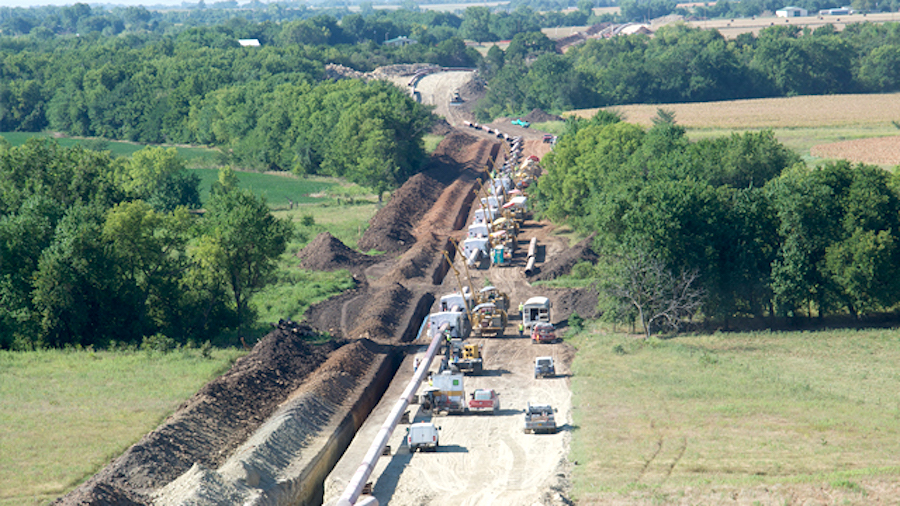Underperforming Keystone Pipeline still hurting Canadian oil prices: GMP FirstEnergy

The blowout in the price spread between Canadian heavy and U.S. light crude isn’t narrowing substantially any time soon, according to analysts with GMP FirstEnergy.
While Canada’s heavy oil producers are faced with the challenge of increasing rail volumes in the absence of a new export pipeline, they’re also dealing with issues on an operational system into the U.S.
“The most immediate pressing issue continues to be underperformance on the Keystone pipeline in terms of volumes shipped. Industry reports continue to point to throughput volumes running anywhere from 70,000 to 100,000 bbls/d under the pipeline’s design capacity of 590,000 bbls/d,” GMP FirstEnergy said in a research note late last week.
“Although these reports have varied in terms of affected volume estimates, the pipeline has been running at less than full operating pressure after a line break in North Dakota in November 2017.”
The reduced line pressure was ordered by U.S. regulatory agencies, intended to assess the pipeline’s operational capabilities, especially on the segment that suffered the line break, as well as assessing any other structural issues that might be inherent in the pipeline’s design, analysts said.
“Hard information has been difficult to come by from either the pipeline’s operator, TransCanada, or U.S. regulatory agencies, as to when the pipeline might return to full pressure and help to alleviate a backlog of heavy oil barrels that has been accumulating in Alberta against a rising tide of production. At this stage, we are of the view that the pipeline will be allowed to return to full operating pressure by the end of the second quarter of 2018, allowing additional heavy oil flows of up to 100,000 bbls/d to reach the U.S. Midwest market and the U.S. Gulf Coast market via TransCanada’s affiliated Marketlink pipeline.”
The spread between Western Canada Select (WCS) and West Texas Intermediate (WTI) increased from $15.40/bbl in November 2017 to $23.73/bbl in December, spiking to $26.91 in February 2018. In March the differential averaged $24.82/bbl, according to the Daily Oil Bulletin.
“We have widened the WTI-WCS price spread by more than US$8 per barrel for 2018 to around
US$23 per barrel, and have widened spreads for 2019 to 2021 by US$4 to US$5 per barrel into the range of US$20 per barrel,” GMP FirstEnergy said.
“Post-2020, we do have a gradual narrowing of the spread back to the US$16 to US$17 per barrel range by 2023,” as new pipeline export capacity is expected to become operational.
The analysts now expect WTI to average $66 this year, and $67.75 in 2019.
(Written by Deborah Jaremko)
This article was first posted at: http://www.jwnenergy.com/article/2018/4/canadian-oil-prices-continue-be-hurt-underperforming-keystone-pipeline-gmp-firstenergy/
{{ commodity.name }}
{{ post.title }}
{{ post.date }}




Comments